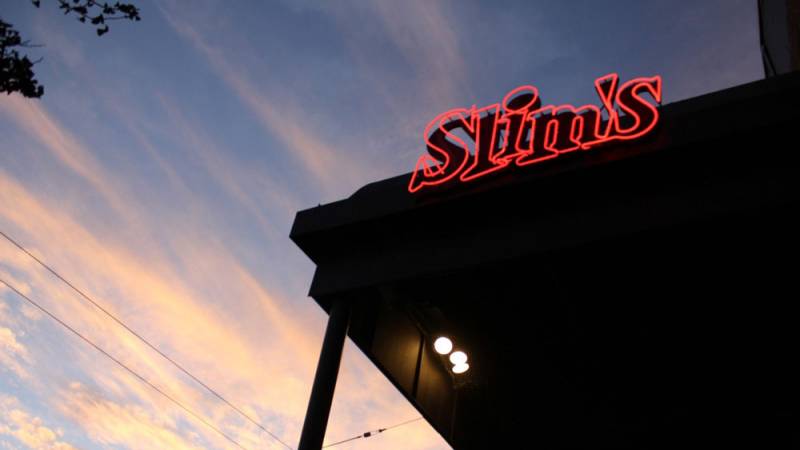Slim’s, the San Francisco nightclub that presented an eclectic array of live rock, blues, jazz, folk, R&B and rap artists for over 30 years, has been sold to new owners promising to book “mostly EDM, Top 40 DJs” and “no live band[s] like what Slim’s had.”
The new club in the former Slim’s location at 333 11th Street will be called YOLO, according to a permit application to the City of San Francisco. The application also promises a dress code, ropes or barricades for lines at the front entrance, and security staff in suits and ties. The new owners, Michael Hu and Peter Lin, have been co-owners for the past eight years of Pure Nightclub in downtown Sunnyvale, a lounge concept club with VIP sections and bottle service. It looks like this.
In other words, it’s not at all like Slim’s, whose closure in March marked the beginning of the pandemic and the end of a Bay Area institution. In its three-decade run, Slim’s hosted a constant stream of live bands, including intimate shows by Radiohead, Prince, Coldplay, Bruno Mars and thousands of others inside its brick walls.
That type of booking, which cemented Slim’s as an “iconic space, and historic space,” as entertainment commissioner Steven Lee put it in an Aug. 4 permit approval meeting, does not extend to the club’s new format. YOLO’s booking will tag-team with Pure Nightclub, Wu announced in the permit meeting, with the same DJs playing alternating weekend nights at both clubs.
While Top 40 and EDM DJs are a staple at Pure, the club has also held afterparties “hosted” by well-known rappers and R&B stars (past afterparties have included DaBaby, YG, Blueface and Nipsey Hussle)—not so much a full concert but an appearance, during which a small handful of songs might be performed.


